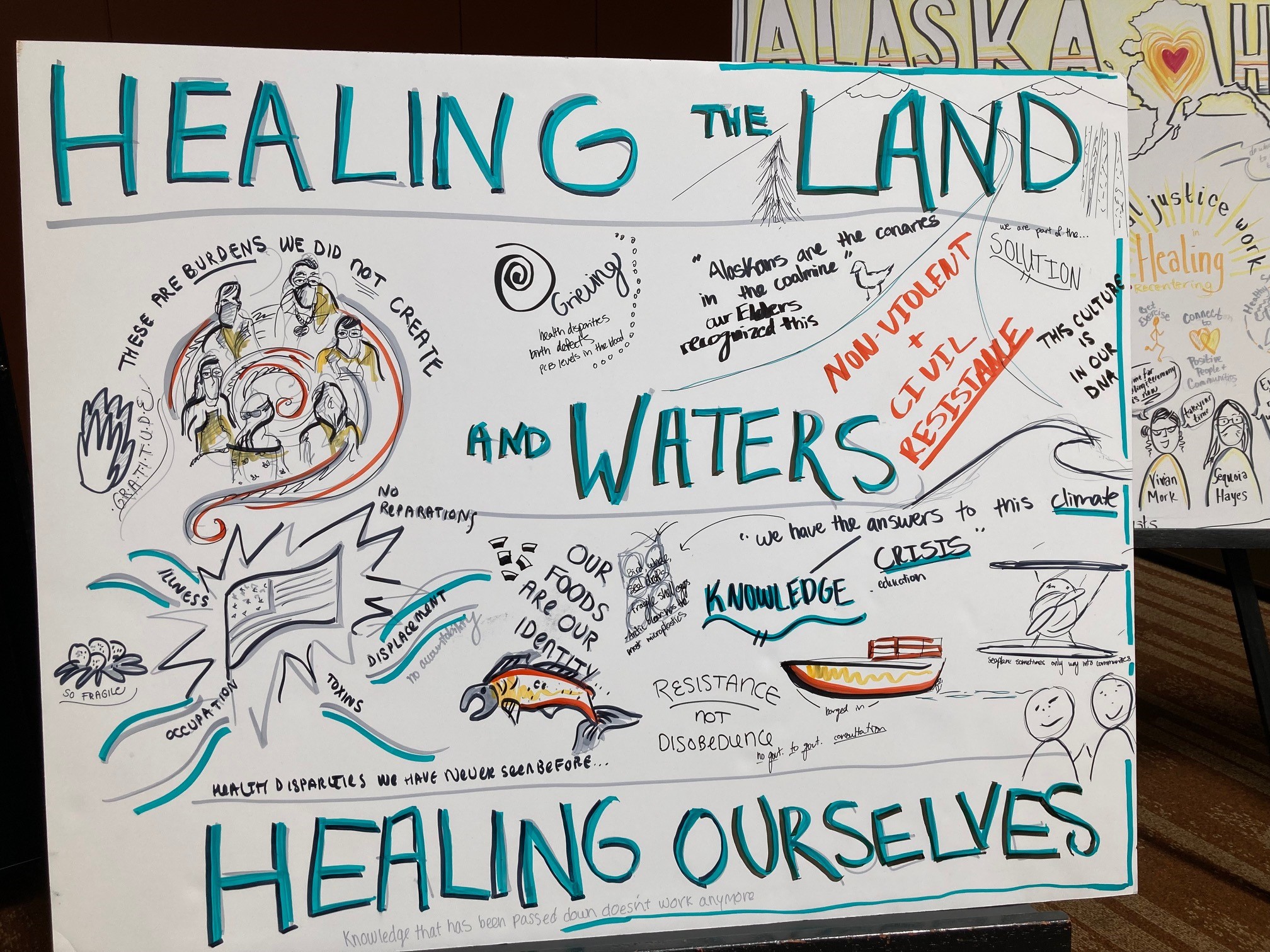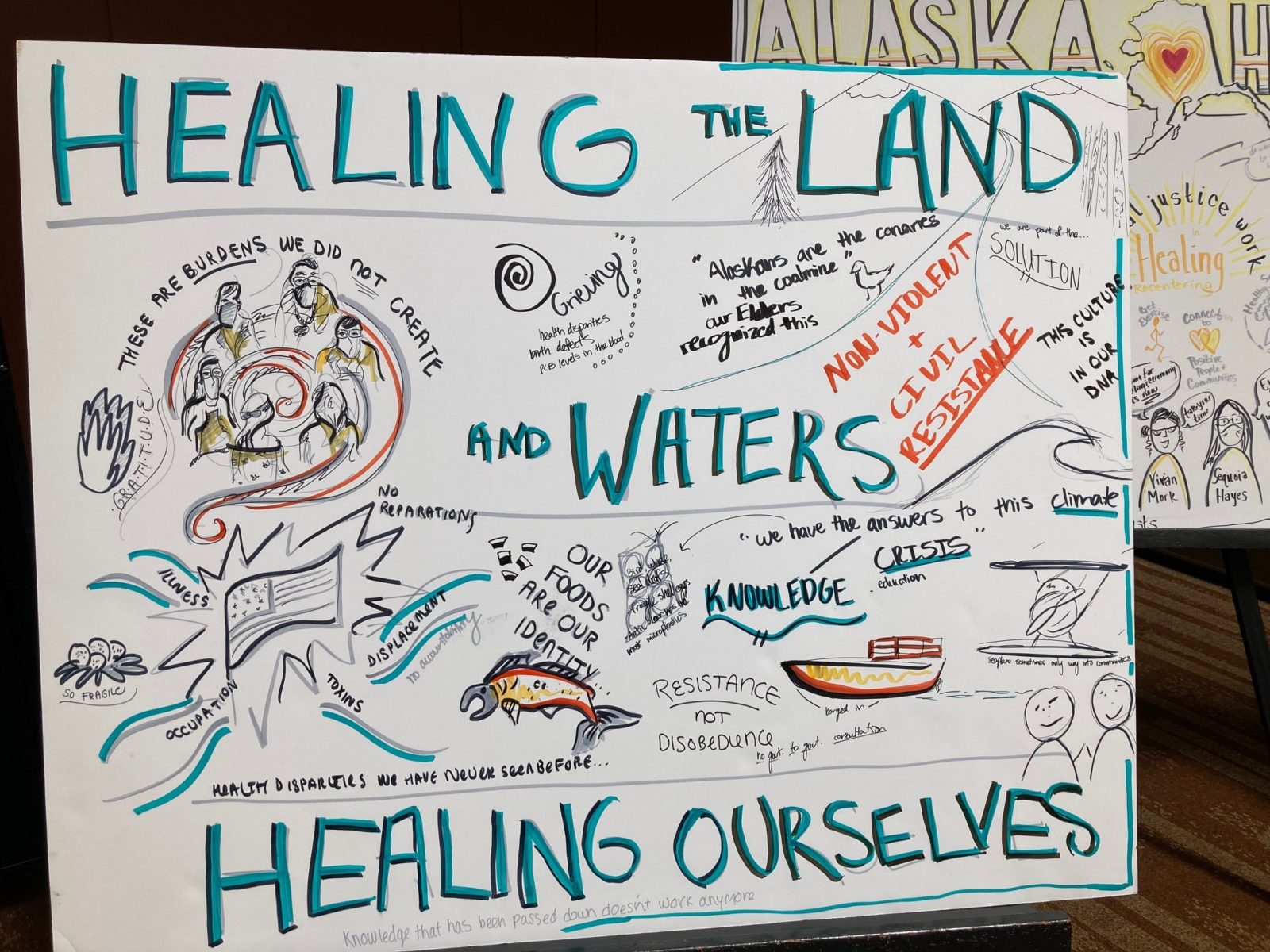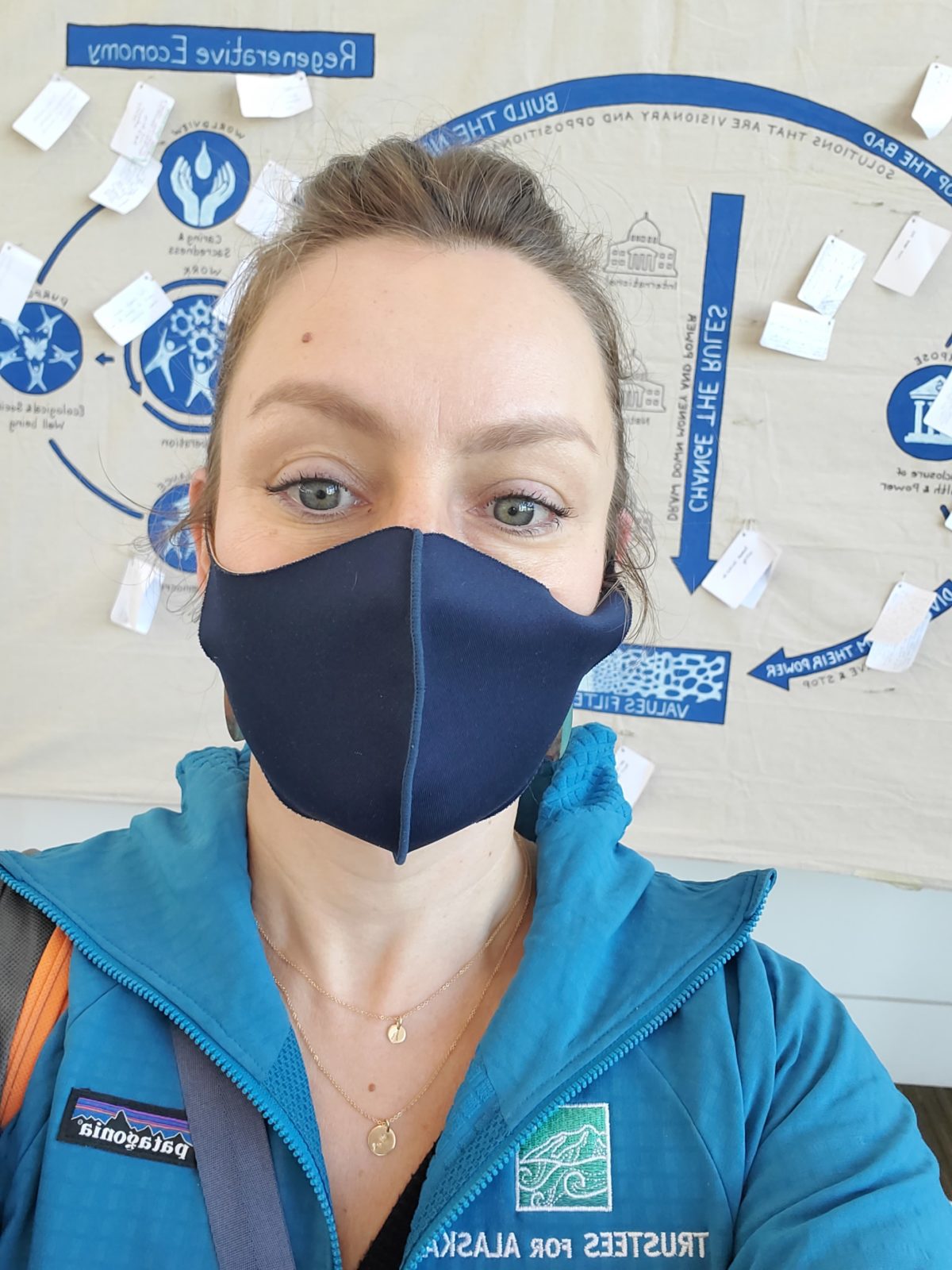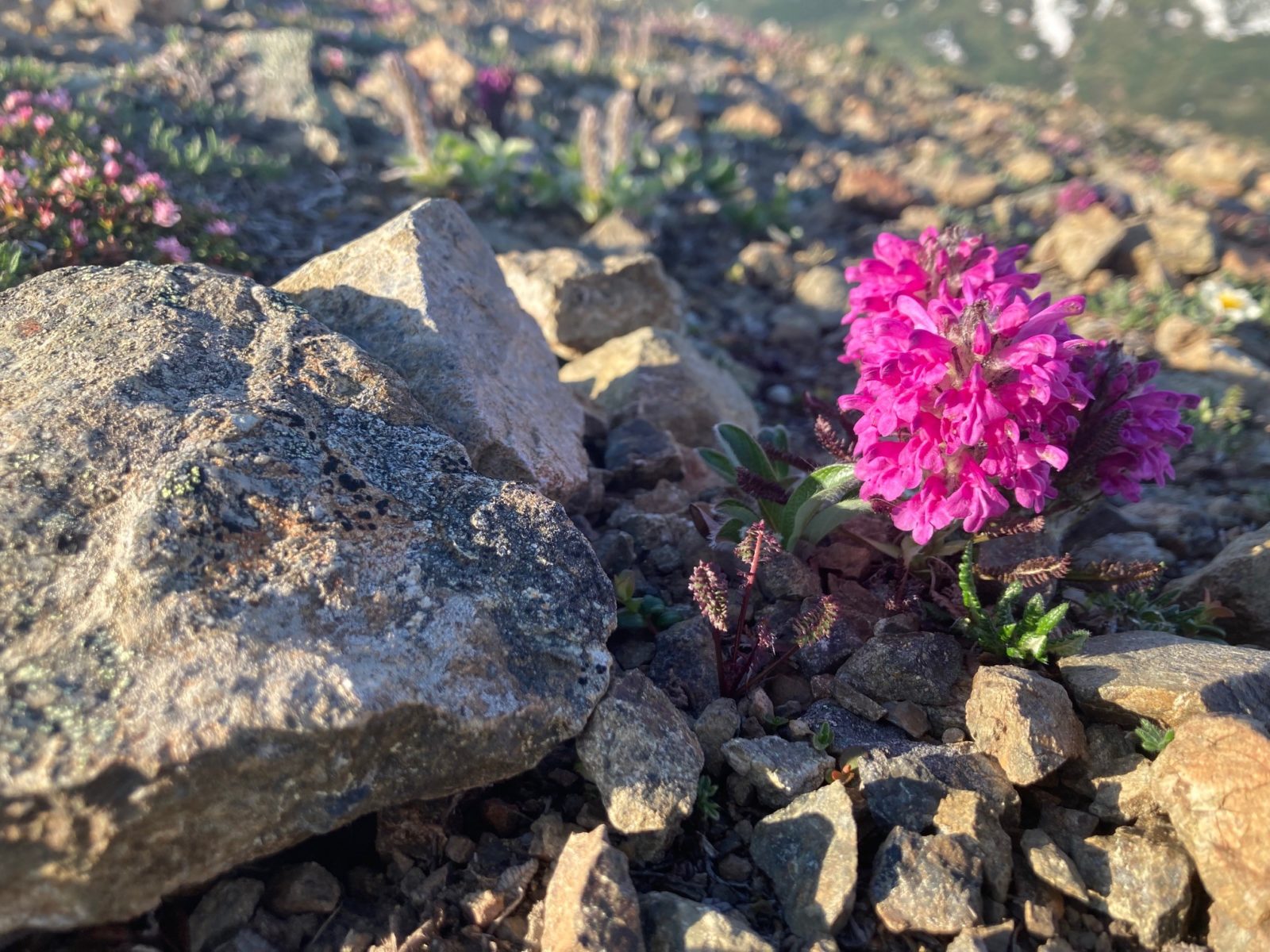
Reflections from the Just Transition Summit
Four of us from Trustees joined the Just Transition Summit at the end of May in Anchorage. The weather was warm and clear, the gathering kind and meaningful, and the ideas rich and robust in heart and vision.
Here, each of us shares something that resonates from that gathering.
If alone, I wouldn’t have a name
By Mackenzie Pope, digital communications manager
I appreciated the Just Transition Summit and the framework it provided. It left me feeling incredibly grounded and grateful for my community.

The summit took place the same weekend I wrapped up a 5-month long training on anti-racism via Zoom, so I had to split my time between the two things. It was a bit hectic, but so worthwhile.
The anti-racism program covered many of the same topics as the summit, but included people from around the country. Being able to go to the summit and have conversations about how we can build a more equitable and sustainable community here in Alaska felt like bringing all that I learned in the national program home.
What was most kismet about the timing of the Just Transition Summit was one of the keynotes given by a board member of the very organization facilitating the national anti-racism training. Hearing his words let me know I was right where I needed to be!
Gopal Dayaneni ’s keynote resonated with me in many ways (you can watch it here). The work we do together is not easy, and sometimes it feels like the problems are insurmountable. However, the little wins add up. Small, impactful solutions can (and must) tip the scale.
In my role with Trustees, I have to spend so much time on social media where I end up feeling pessimistic. His focus on optimism and on action inspired me to continue believing and building the future I believe Alaskans deserve.
If I let myself believe I can’t change anything, the only “winners” are those harming the places and people I love.
At one point in his keynote Gopal said, “If I was alone I wouldn’t have a name.” That truth sat with me for a long time. Our names are products of relationships.
My Anchorage community really defines me. I’m so grateful that I was able to attend the Just Transition Summit to join with people in my community to create and share ideas about building the good, not just fighting the bad.
What power are you aligned to?
By Rachel Briggs, staff attorney
This was the first large in-person event I’ve attended since the COVID-19 pandemic, and it was both overwhelming and exciting to be physically in community again. On an overarching level, this was a lovely opportunity for me to come out of my shell and reconnect, reground, in community and culture.
I appreciated that the theme of the first day, “healing,” created space to do that—and to connect the micro-level of personal healing to the macro-level of societal healing. While there were specific concepts and actions that felt helpful to me, my biggest takeaway from that first day was just how healing and hopeful it felt, to me, to again be surrounded by a large and diverse crowd of people that are working toward a common vision of a just and regenerative future for people and the planet.
After easing in and grounding together, the rest of the conference focused on creating a shared vision and identifying action points. The most personally impactful panel, for me, was titled “Working Within Existing Systems: The What and How of Regenerative Economies.”
As a lawyer, I made the choice to work within the (admittedly flawed) legal system to create change. And while I appreciate the power that choice has given me, I also see the ways in which participation in that system can create complicity and fear of change. I see the way the system eats people—puts so much pressure on them that they are subsumed in it and lose the space to subvert it.
I have been asking myself recently—how do I make the most of my agency and power within this system without losing my identity and values? I found the discussion at that panel immensely helpful. One panelist offered the question, “What power are you aligned to?” She suggested that even if you utilize a colonial power, you can maintain focus if you are truly aligned to/in service of/uplifted by a different power.
Another panelist offered the suggestion of colonizing the colonizer. How do you force other powers to interact with yours, such that they must adopt your context in order to achieve their objective? Both questions felt useful.
“What is” isn’t forever
By Joanna Cahoon, legal fellow
Building a more equitable and sustainable economy in response to climate change is an enormous mission. The cascading changes necessary for change can easily make me feel overwhelmed.
At the Just Transition Summit I was again reminded that we have the technology we need to make significant advances in reducing greenhouse gas emissions. But there was something more fundamental about the gathering that made me feel hopeful. Attending the summit made the prospect of change feel more attainable because of the atmosphere created by the organizers. It helped me see our current system as less fixed. It felt rejuvenating.

There were some distinct differences between the summit and every other large event I’ve attended as a professional. Those differences helped me see some of the norms of dominant white culture more clearly.
I’ve read about but struggled to really understand what it means to say that white dominant culture values politeness and avoids conflict, for example. Panel discussions I attended on colonialism and racism at the summit laid that norm bare. The speakers were respectful but direct and honest. There were uncomfortable moments and it was clear no one was aiming to avoid them. It was a distinct shift and not something I have experienced often.
There were subtle differences too. Things seemed less rushed, free childcare was available, and there was a real focus on accessibility. All of that created a palpable feeling. It was like stepping out of the dominant culture for a moment and catching a glimpse of a different way.
Seeing that possibility shook things up for me. I left with the feeling that what is, isn’t forever. It was the lightest and most hopeful I’ve felt in a while.
Tethered, untethered
By Dawnell Smith, communications director
The people who gathered at the Just Transition Summit came with open hearts. They came to listen deeply and speak frankly. They came to give space and take space. They came to celebrate the children running through the conference hall and letting go of agendas when dancing and singing was what was required.
My ancestors came to the American continent as white settlers and tools of colonialism. Their stories and truths are mostly lost to m. I came to Alaska to work and find my way. I am grateful now to live on lands still stewarded by the Dena’ina peoples and to work with people and groups committed to envisioning a future that takes care of everyone—and doing so by bringing people together at gatherings like the Just Transition Summit.
The opening keynotes of the summit have permeated my heart ever since. Writer and activist adrienne maree brown came to us virtually, yet intimately called the group to a place of healing. Alaskan Mary Ann Thomas (Mat) then offered a meditation as response.
Together, they spoke about how we’re tethered to the land and earth, and tethered to our people. They spoke about being untethered. They prompted questions like, what happens when we’re untethered or complicit in the untethering of others? How do we transform the trauma of that untethering into belonging and pleasure?

The tone and delivery of their words, the form and structure of their ideas offered much more than expansive lines of inquiry. Truth is, I cannot possibly do justice in describing the palpable resonance of their words.
But I can say this: I live twenty minutes from the mountains and spend time in them every week. I live five minutes from a wooded lake and spend time walking or running around it almost every day.
I am learning again to be on and with the land without trying to fit my experience into and around timelines and agendas and distractions.
I have lately begun to introduce myself to the mountains and rivers again, to talk out loud to the wildflowers, tussocks and rocks, and the marmots, eagles and (of course) dogs.
Yesterday I swam in a shallow lake with underwater grasses brushing against my skin.


